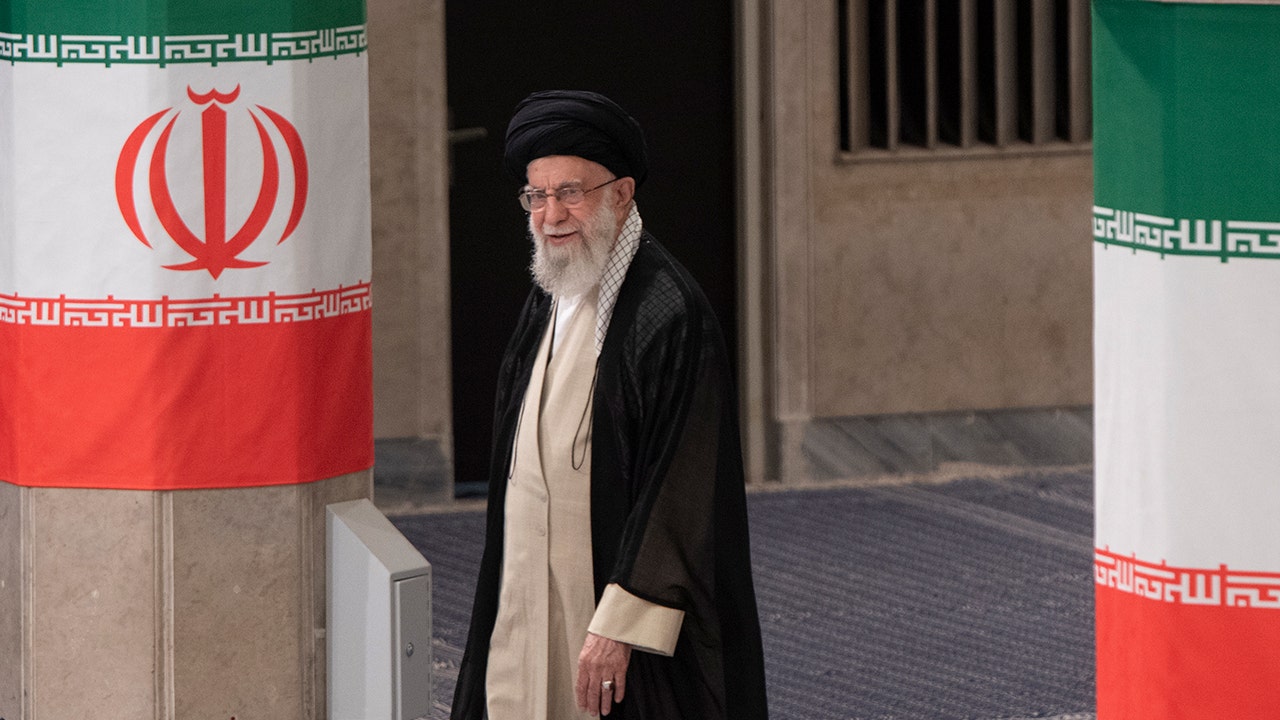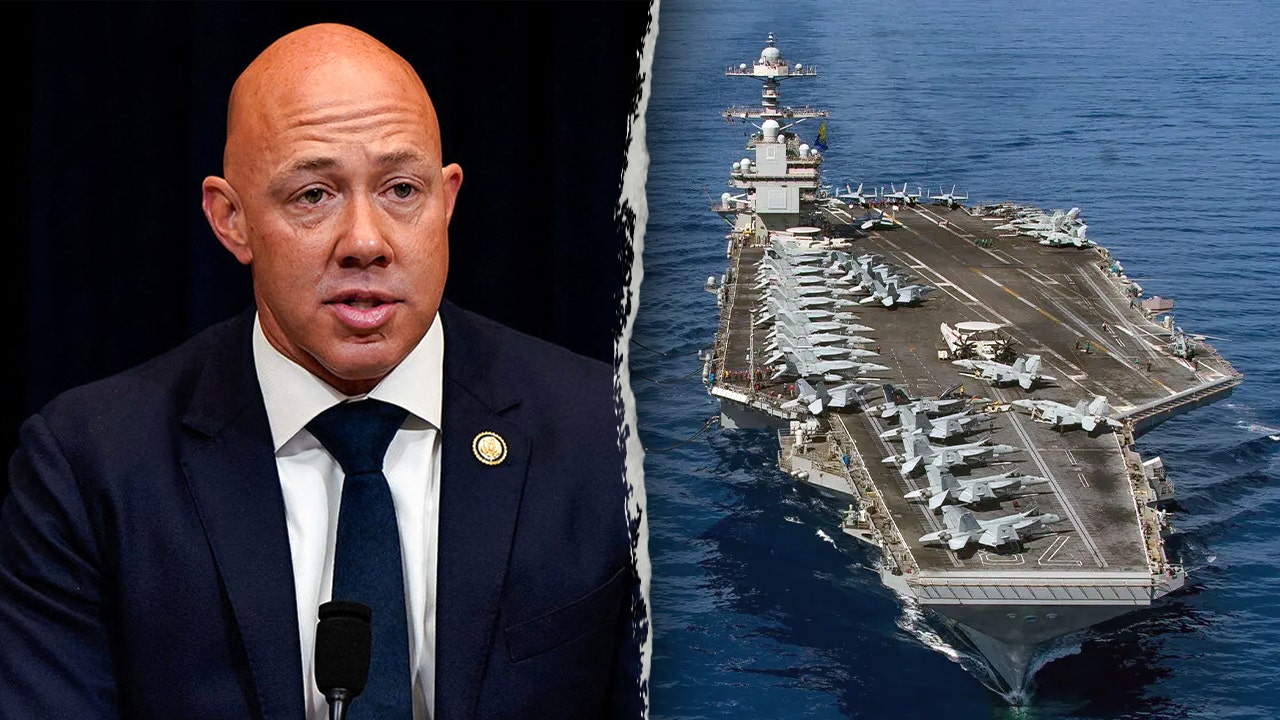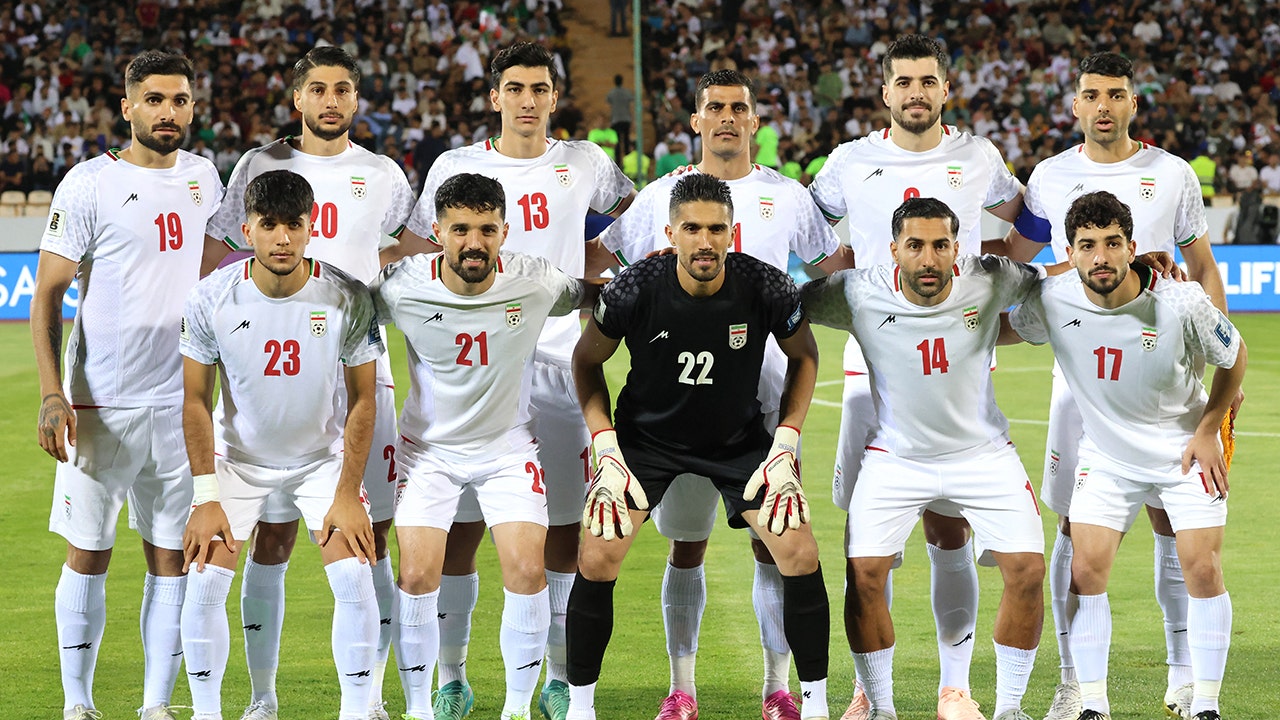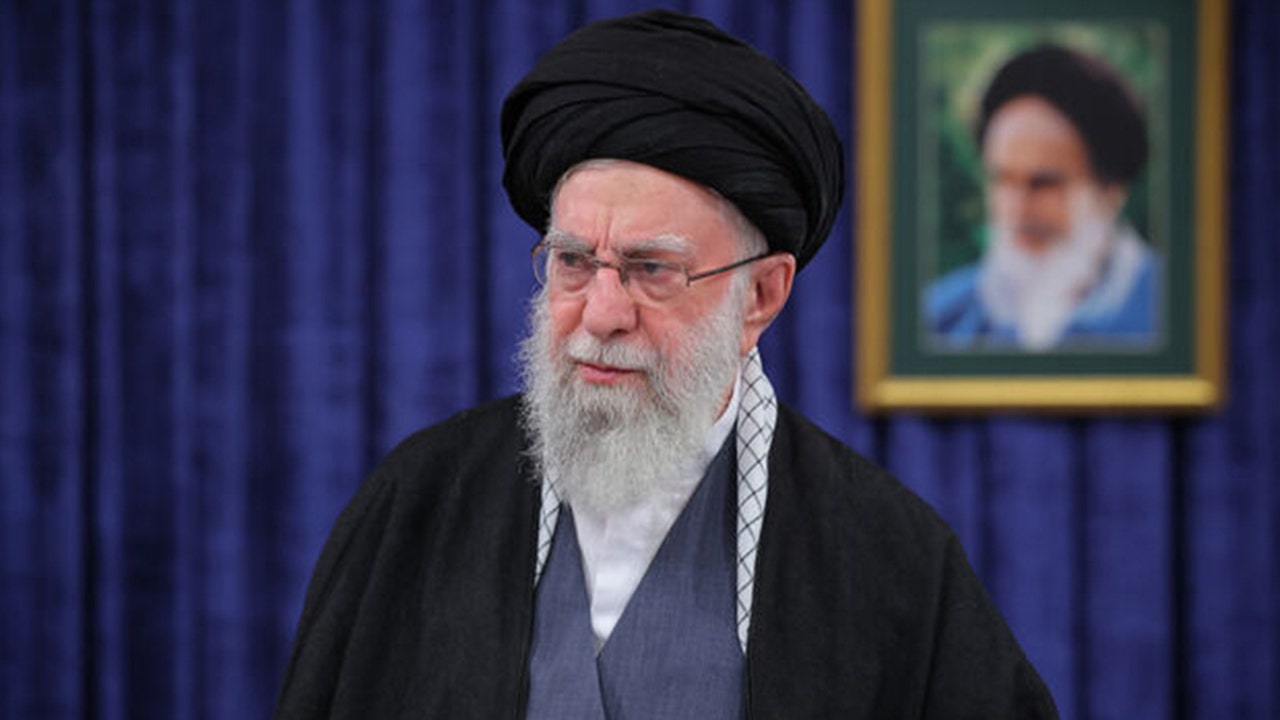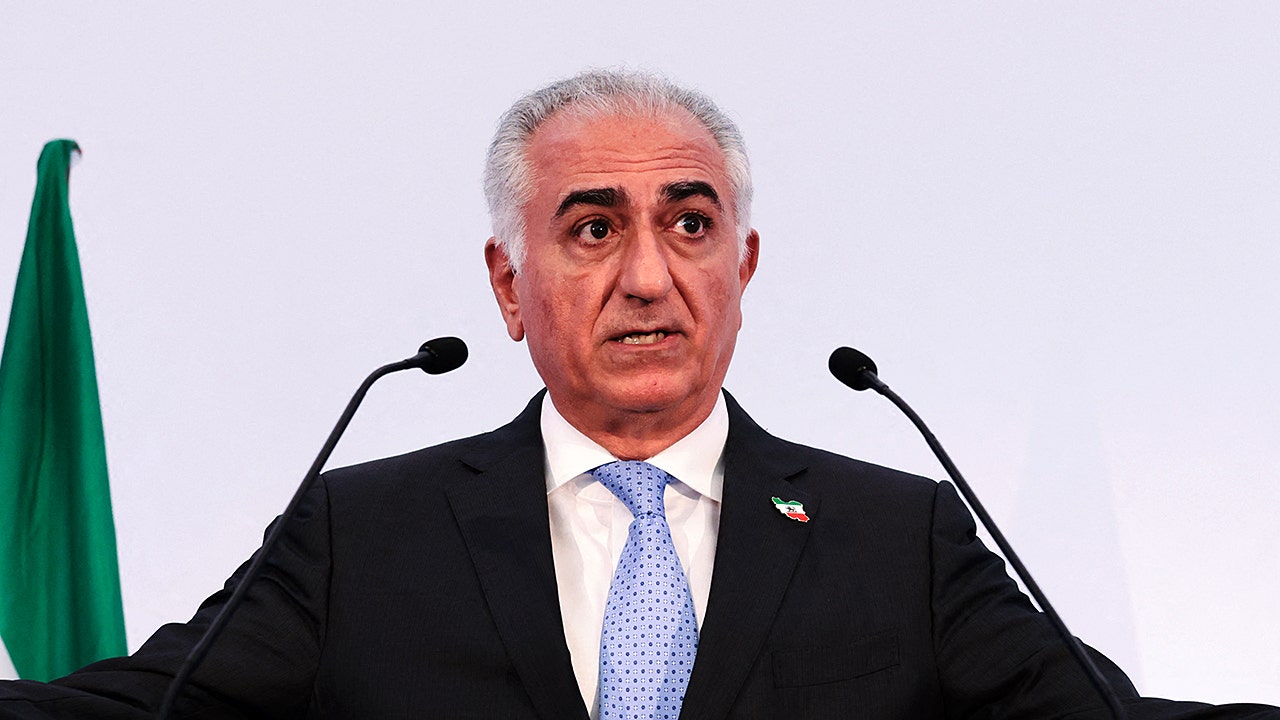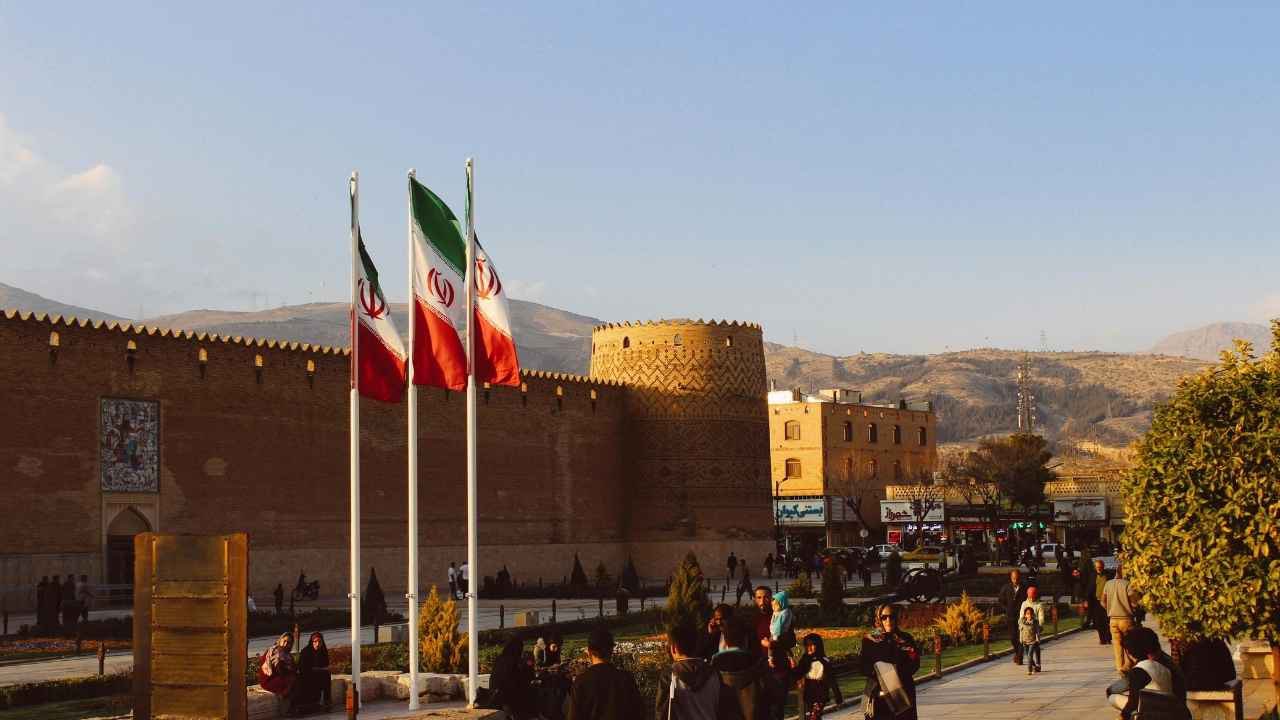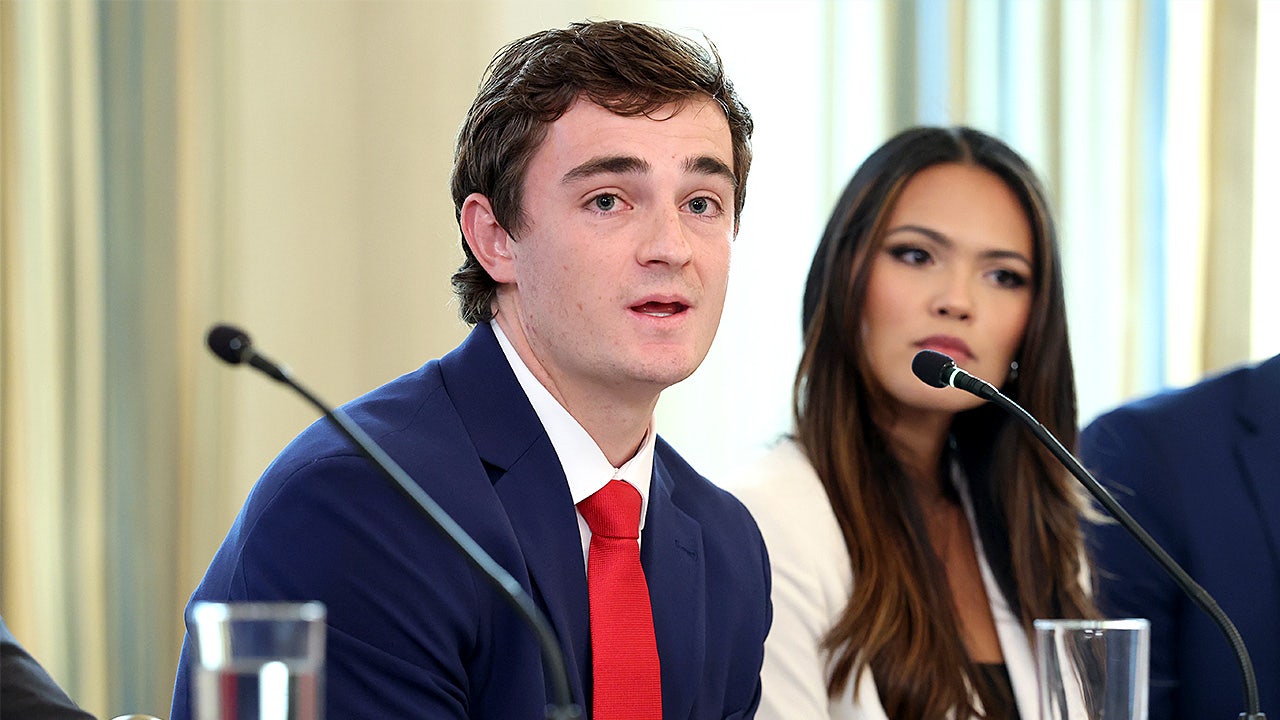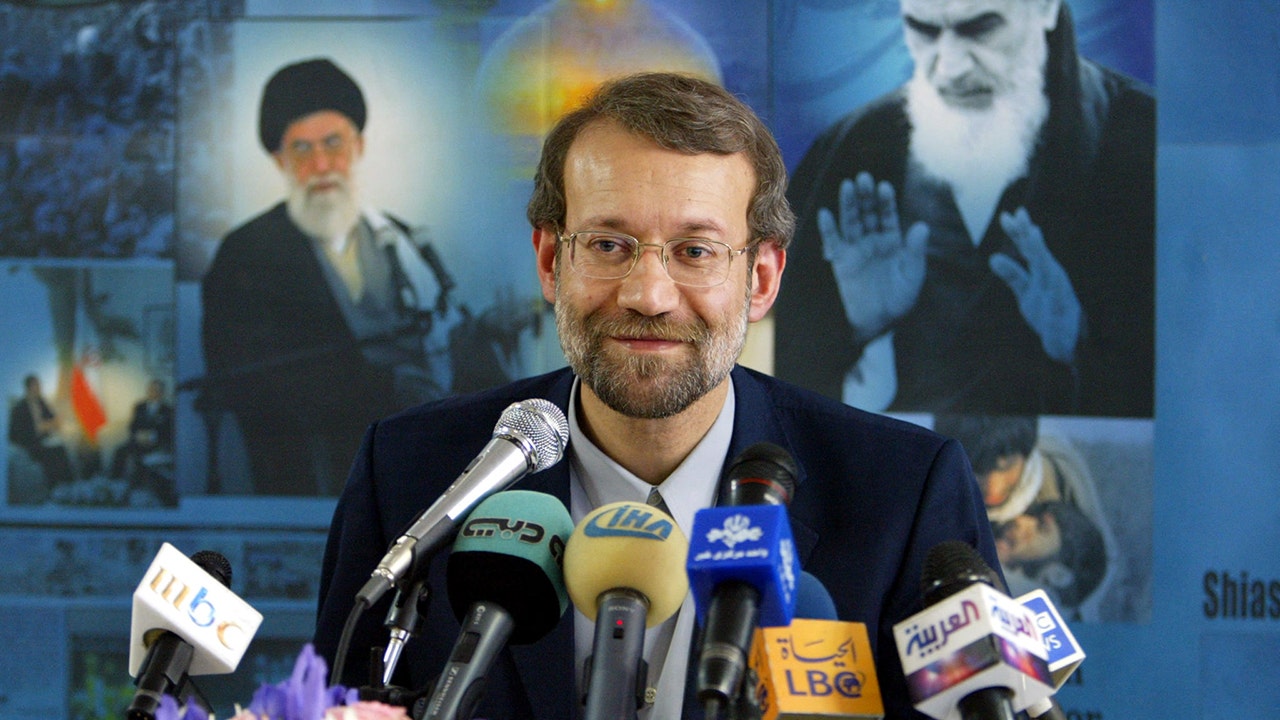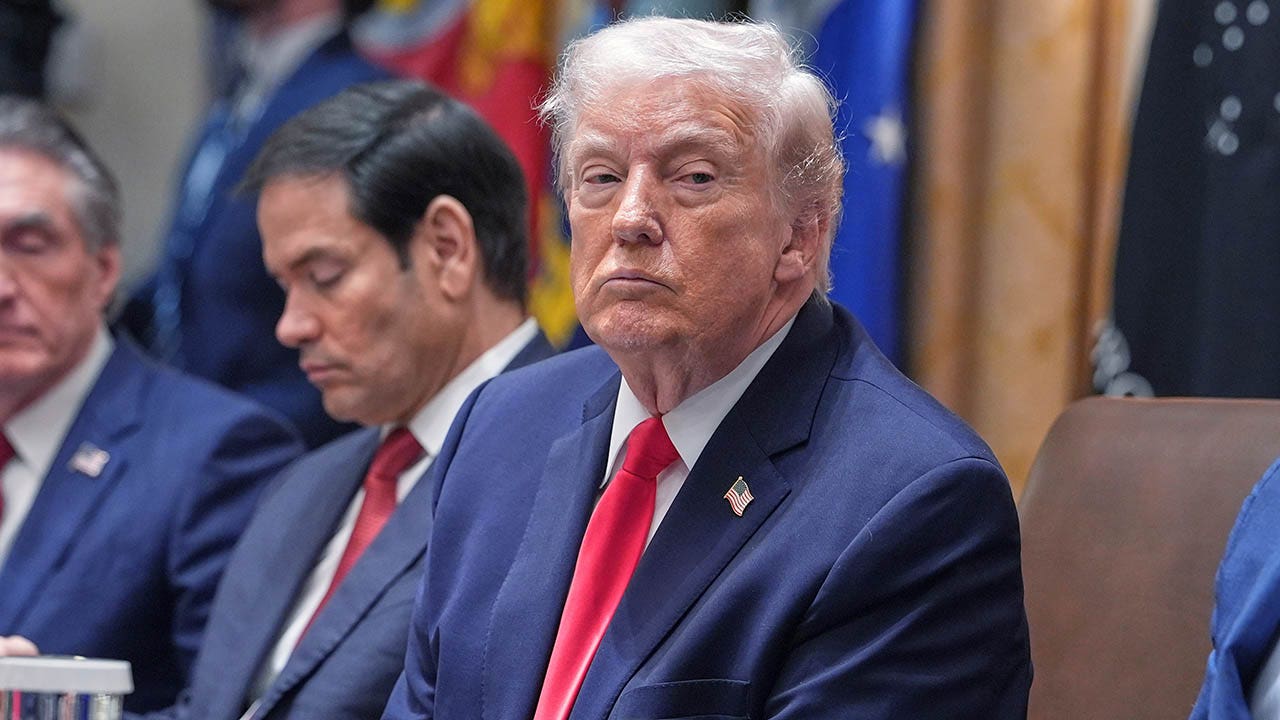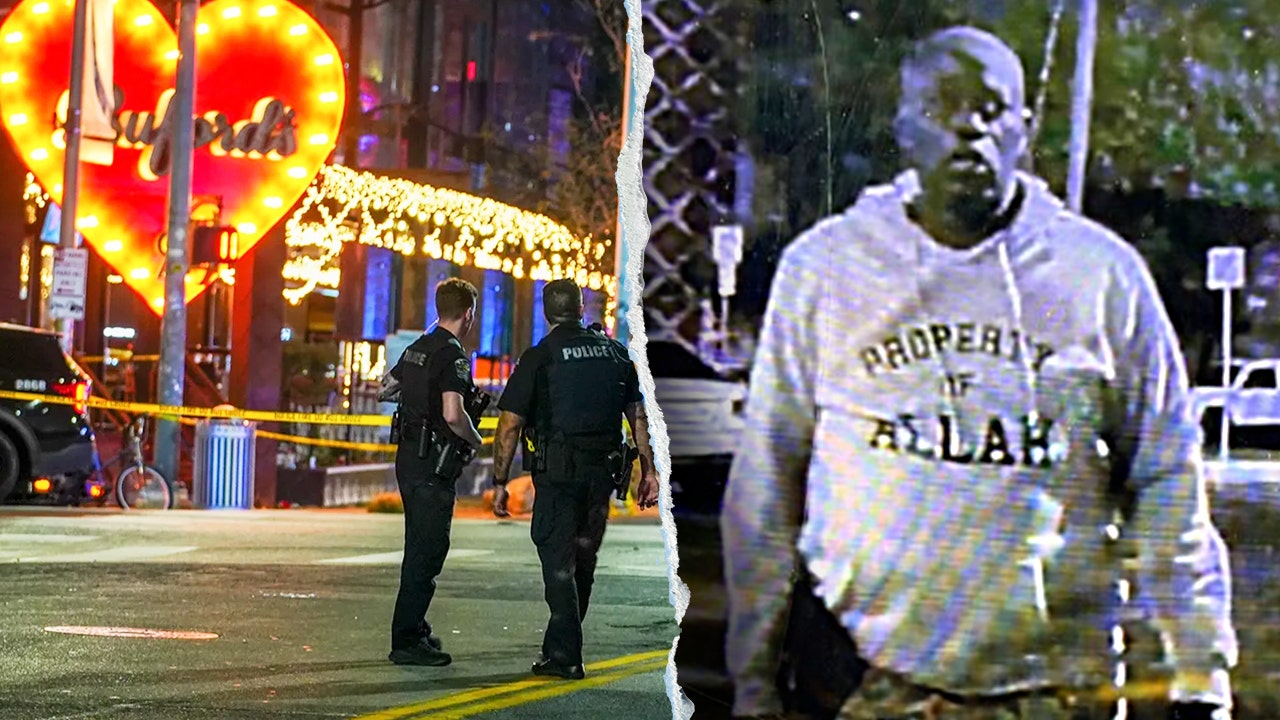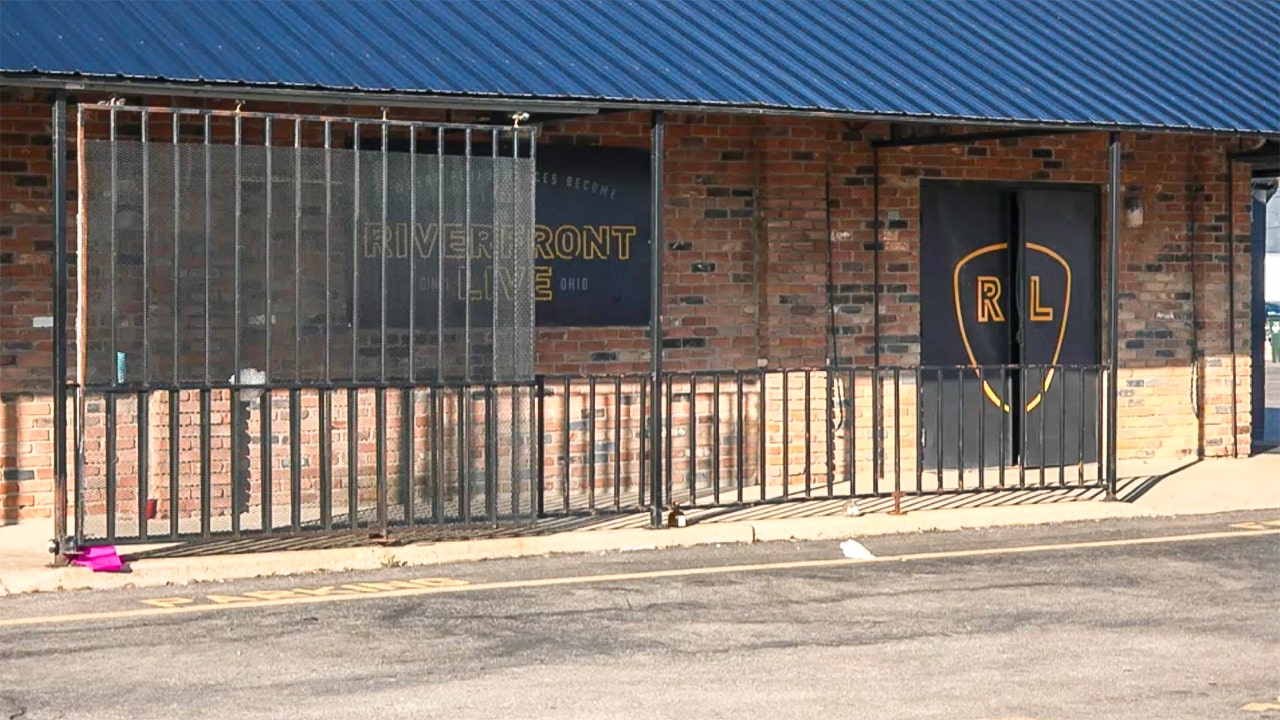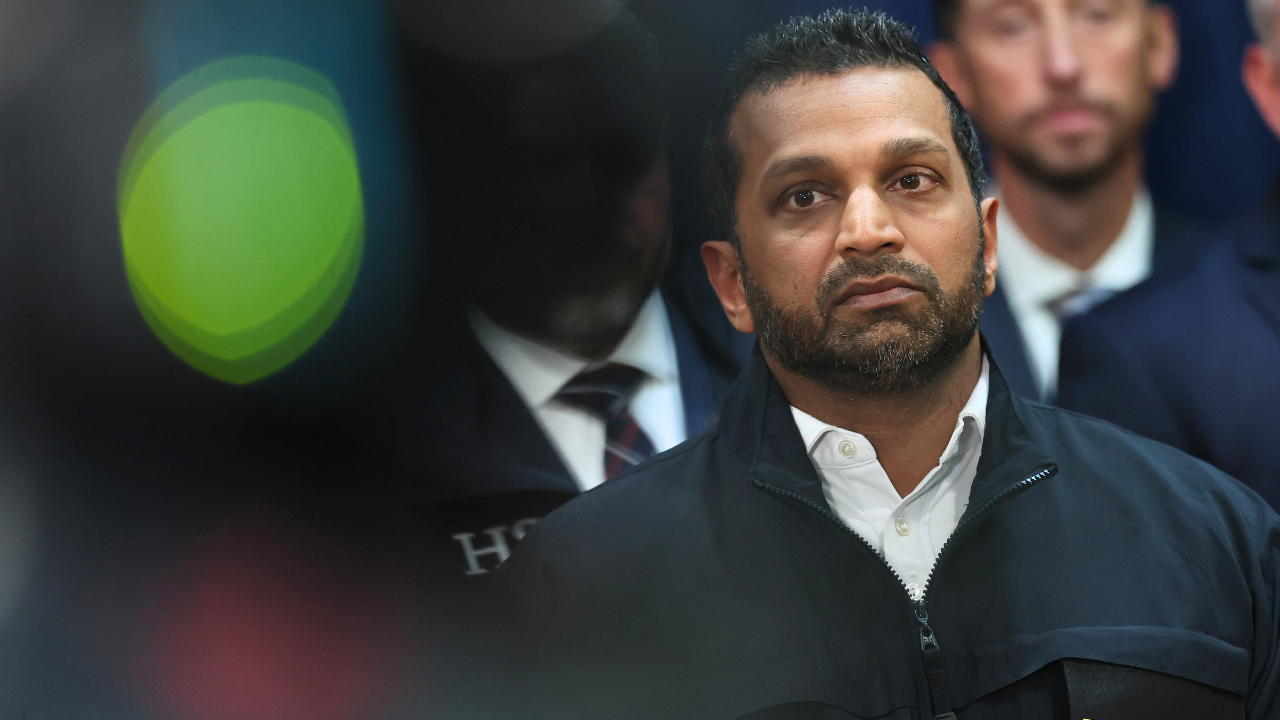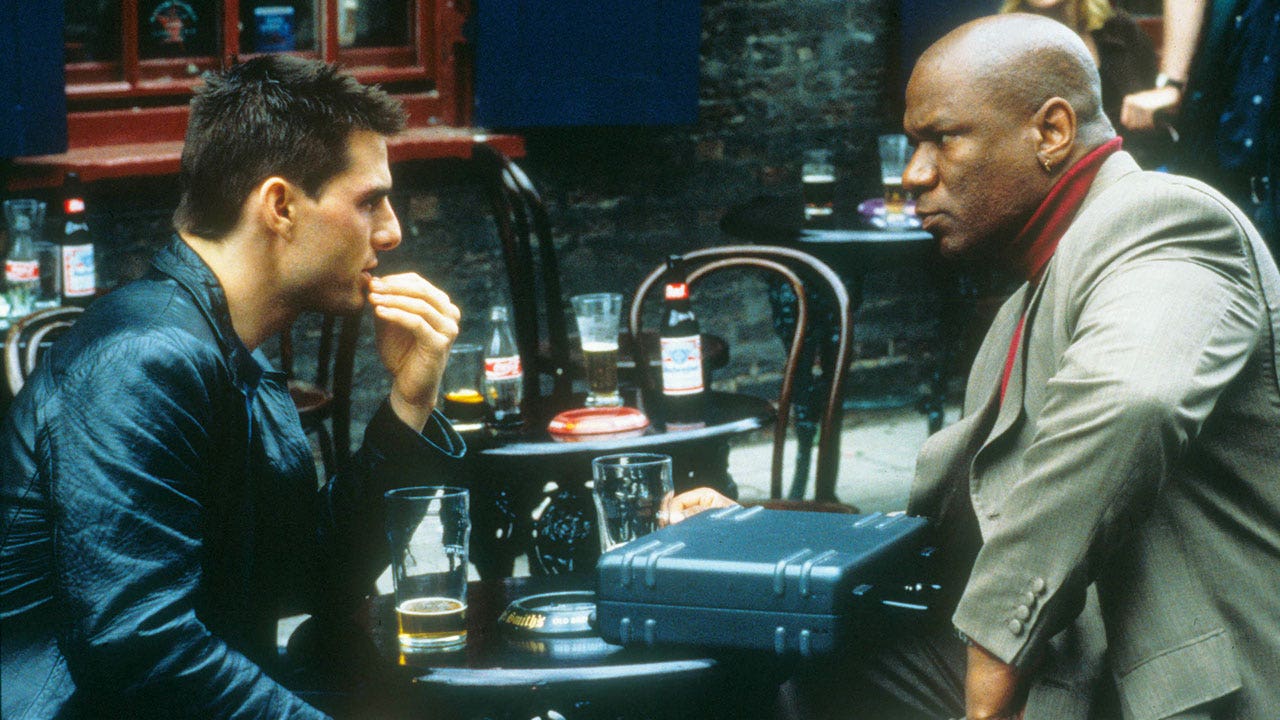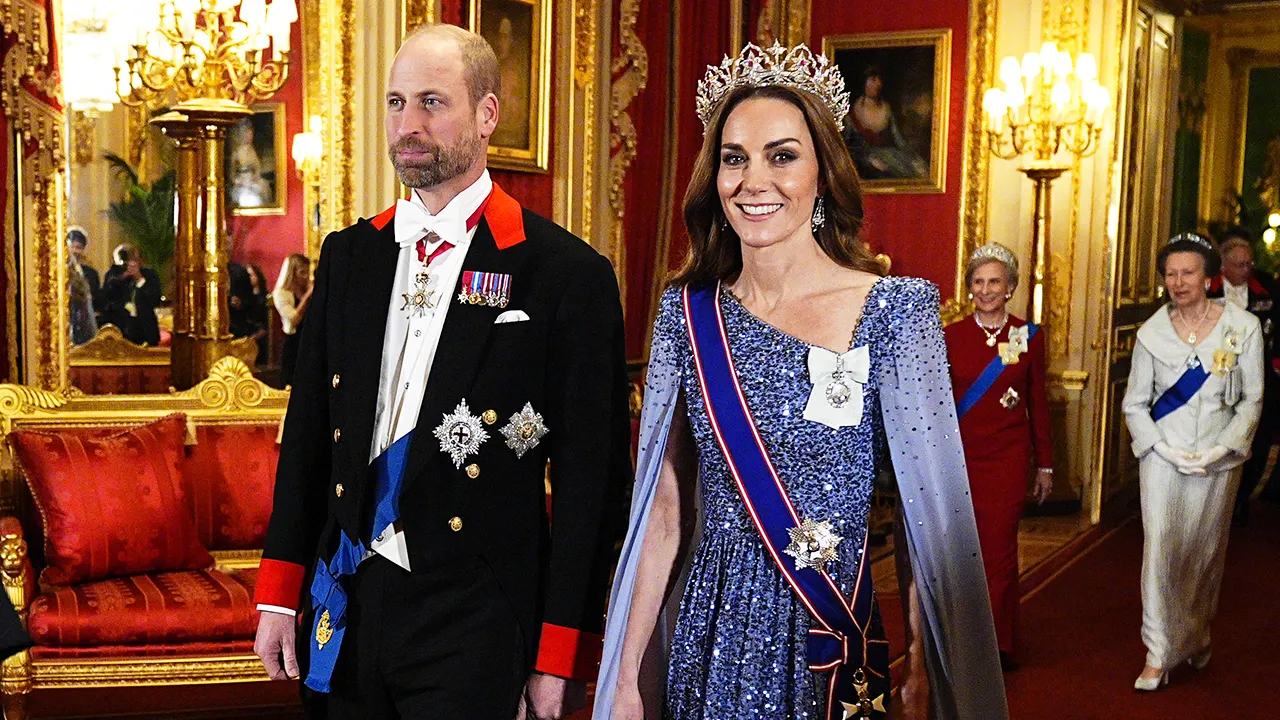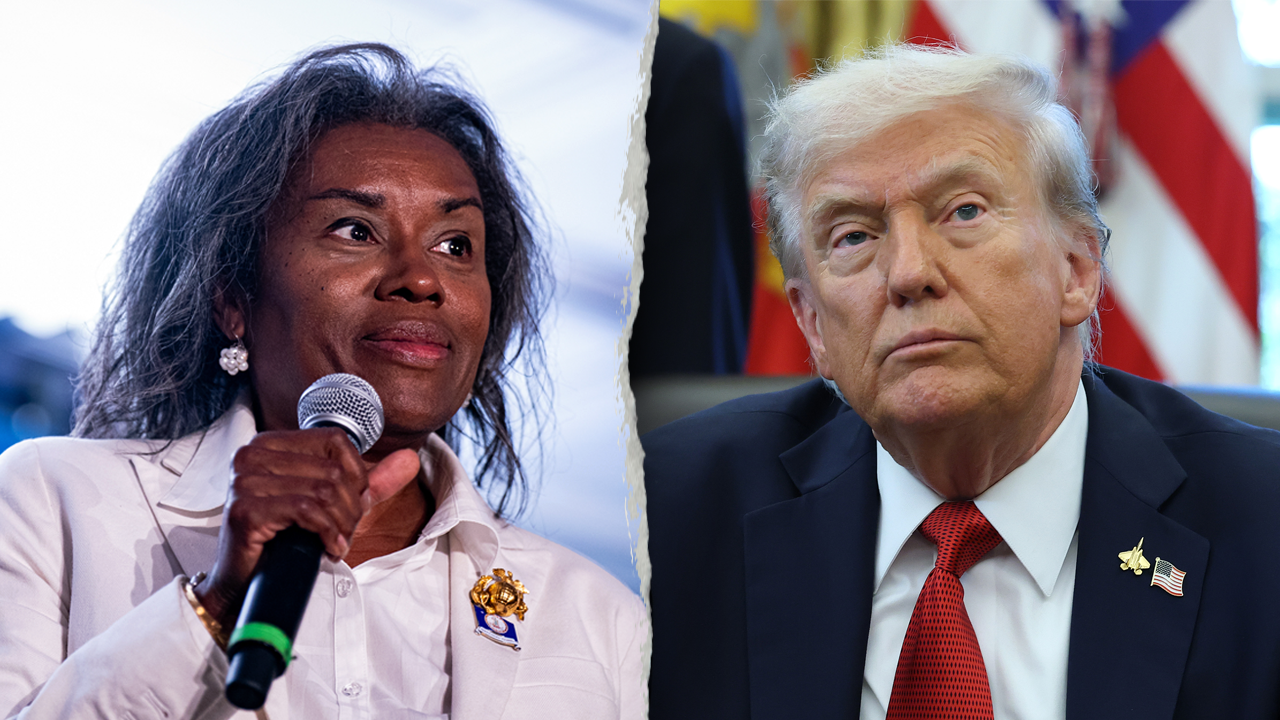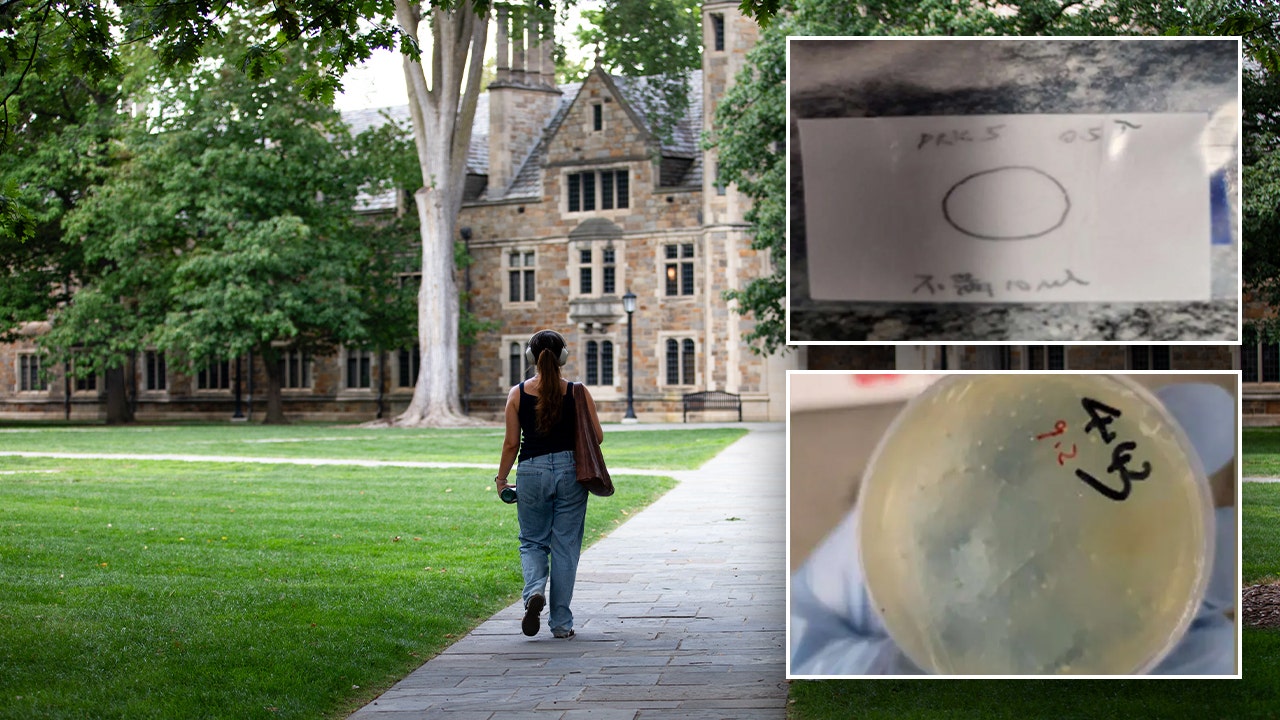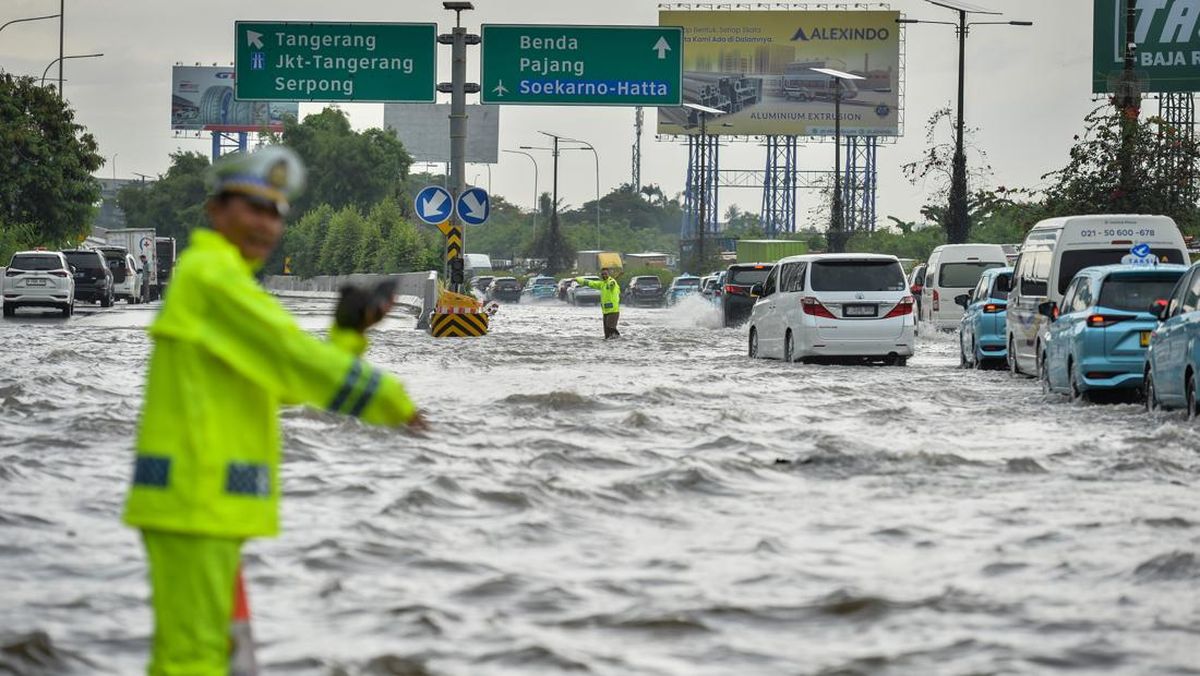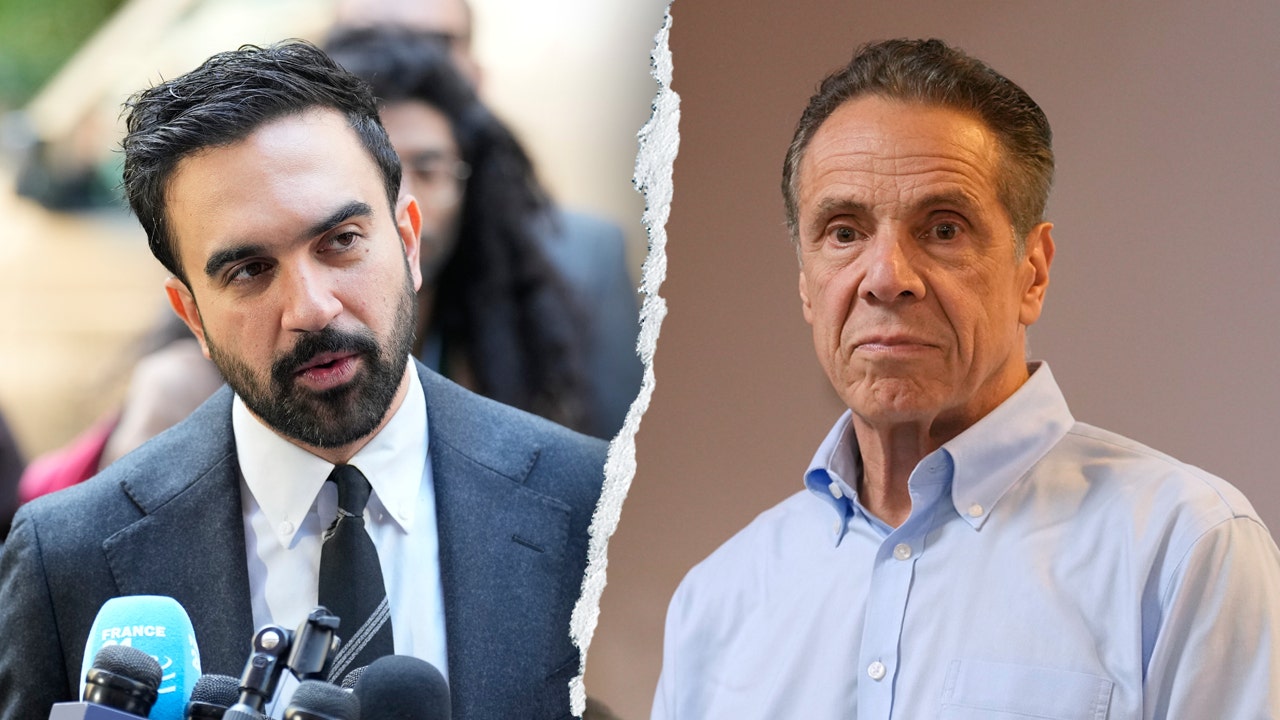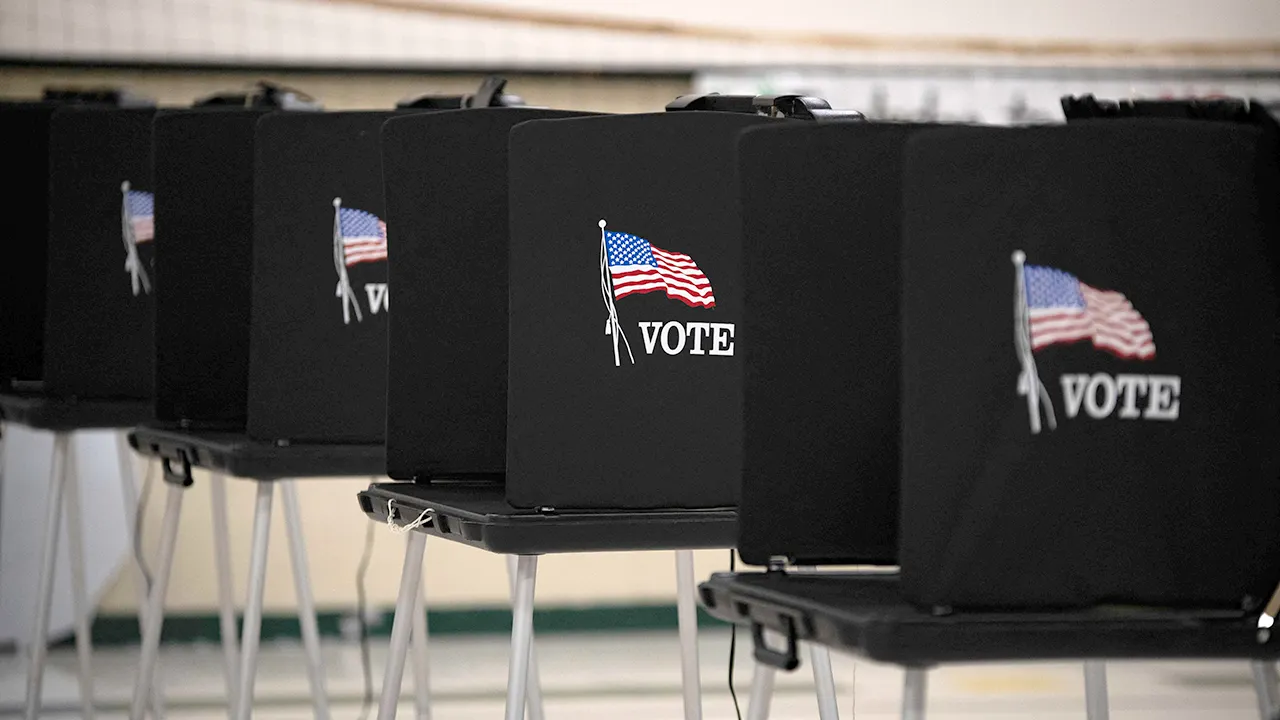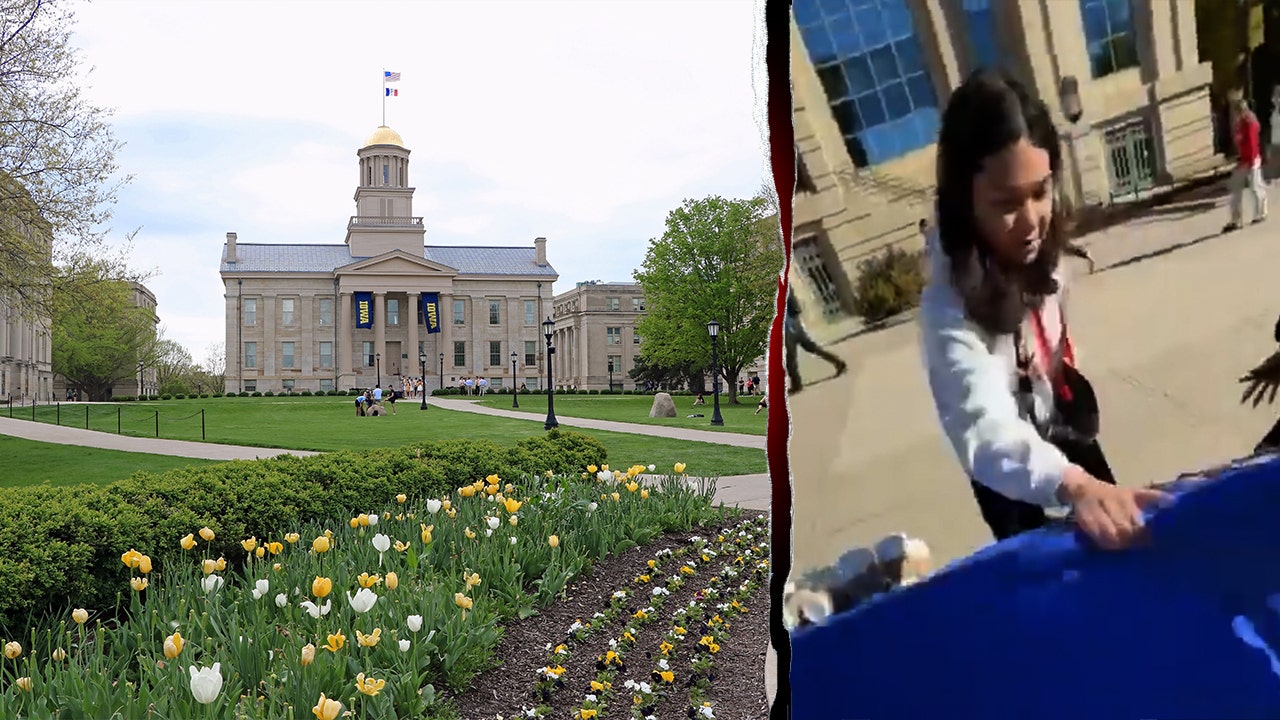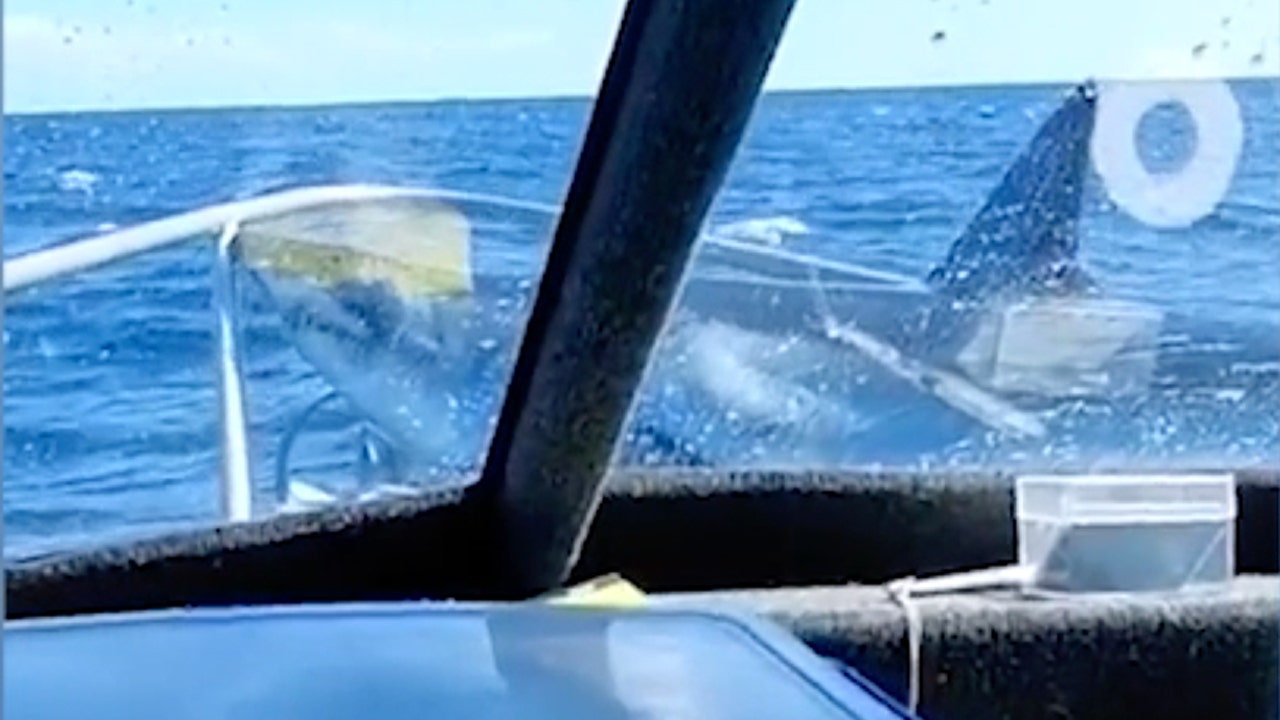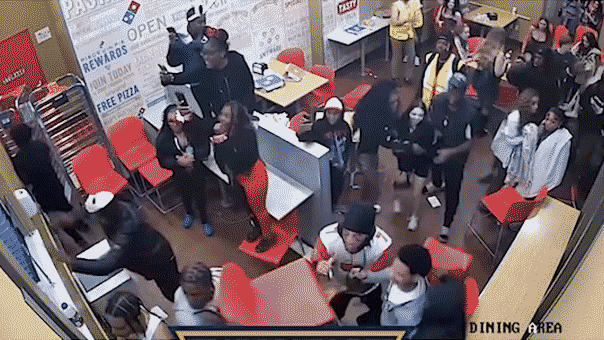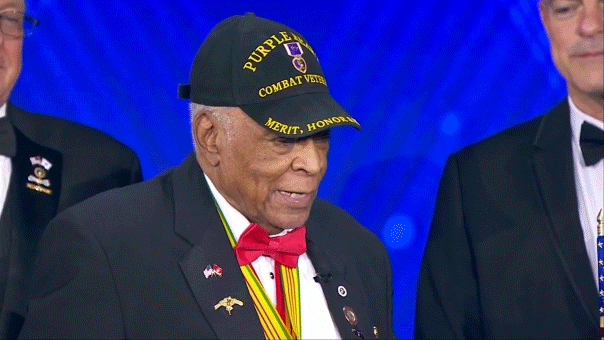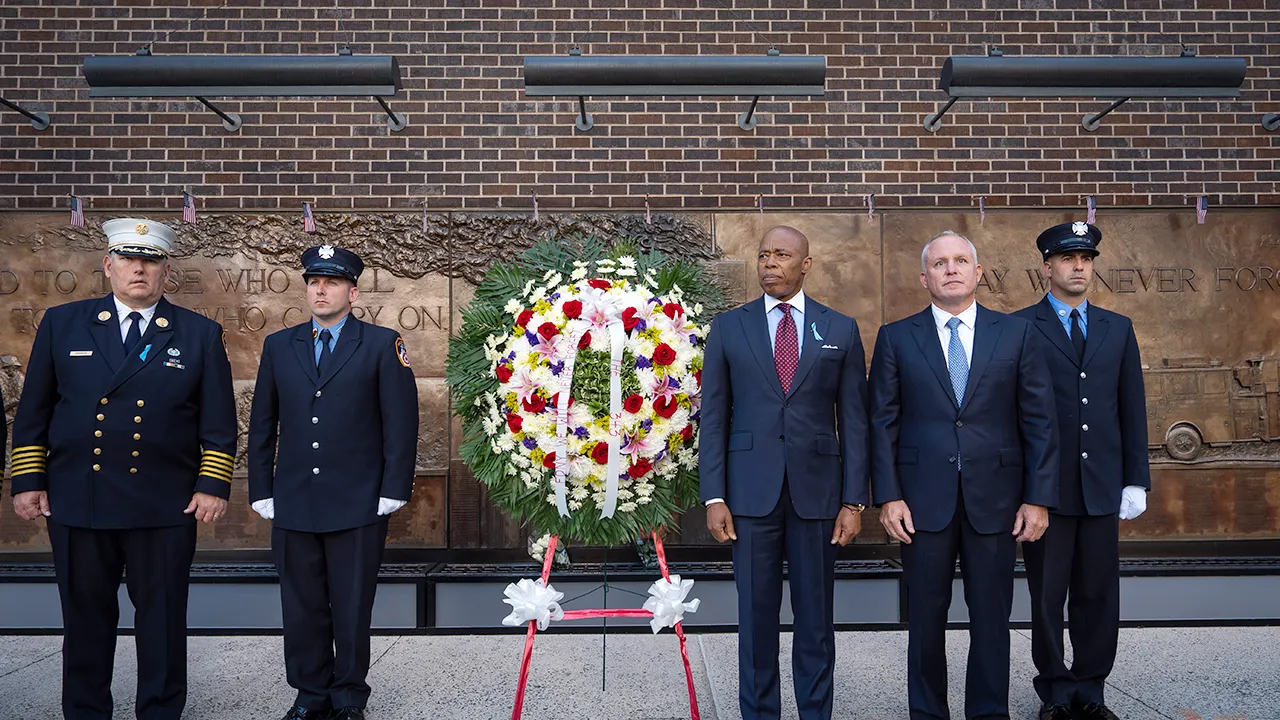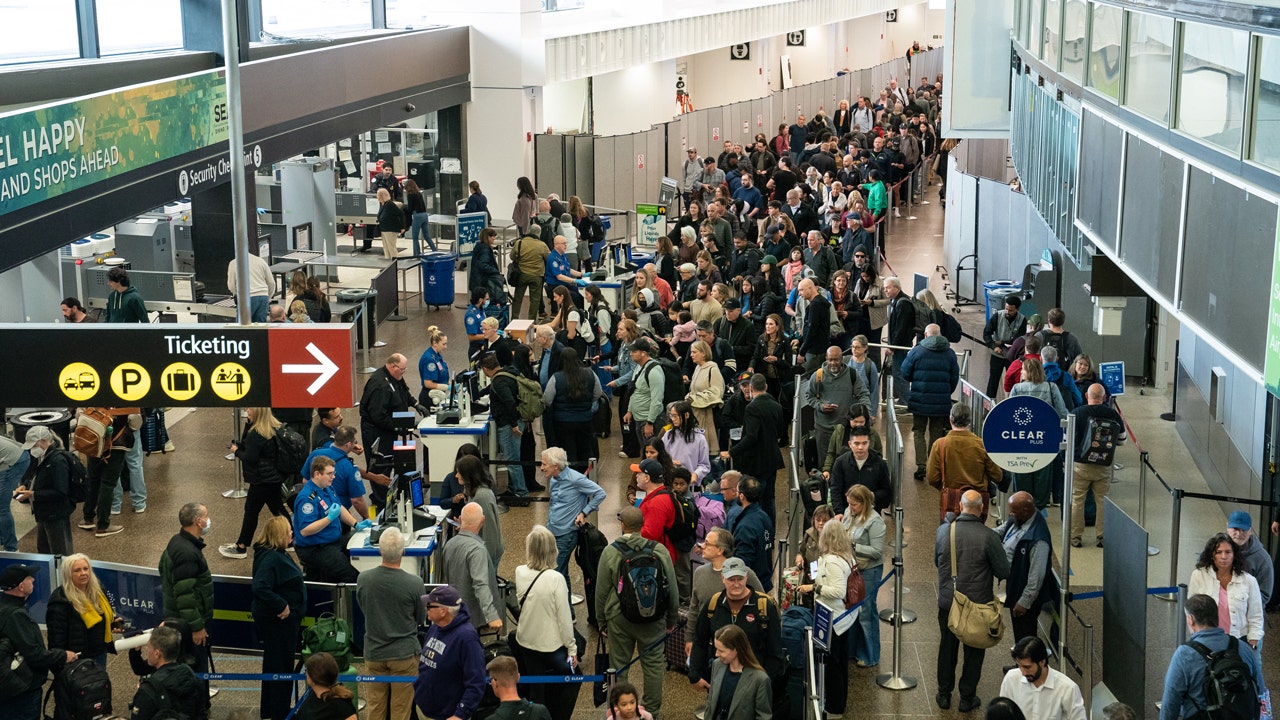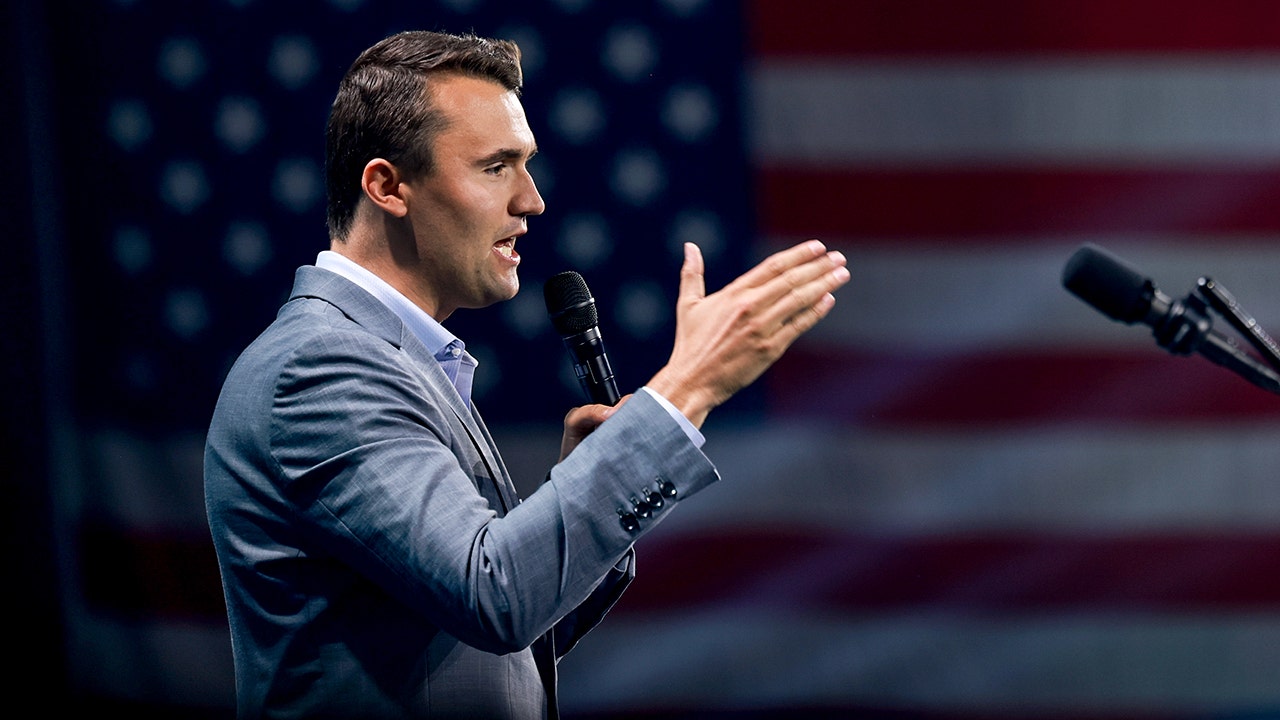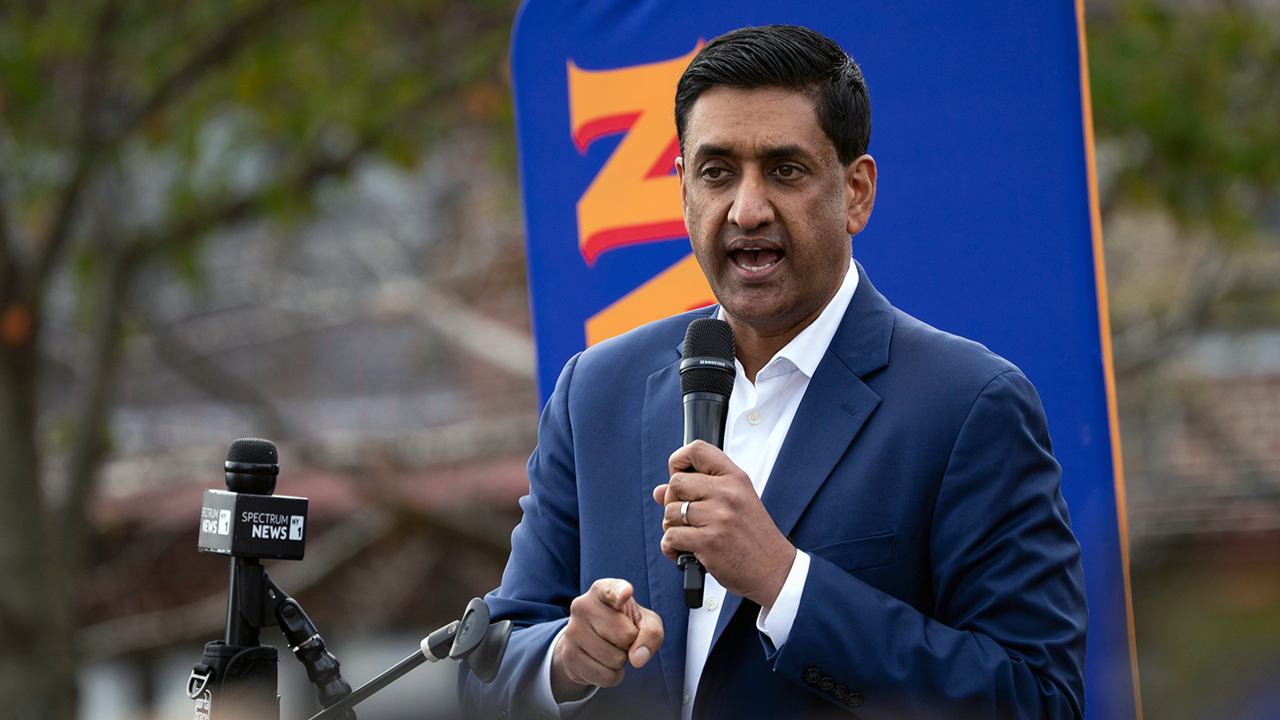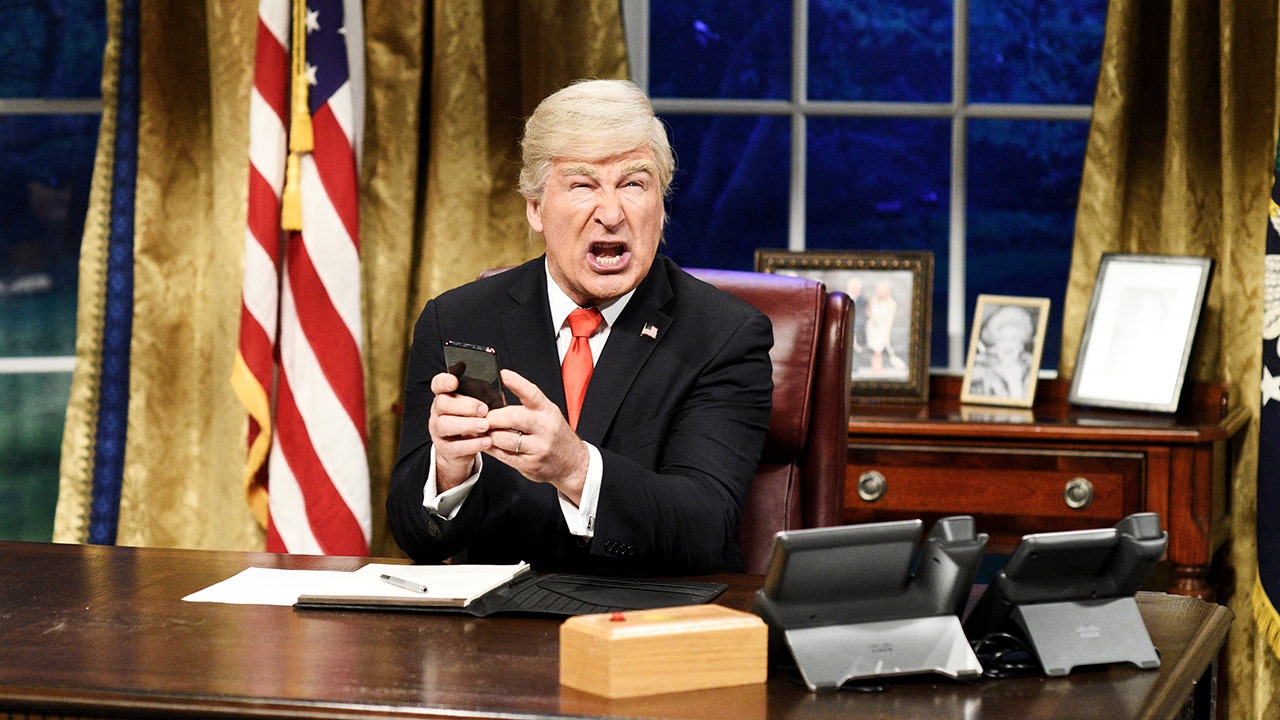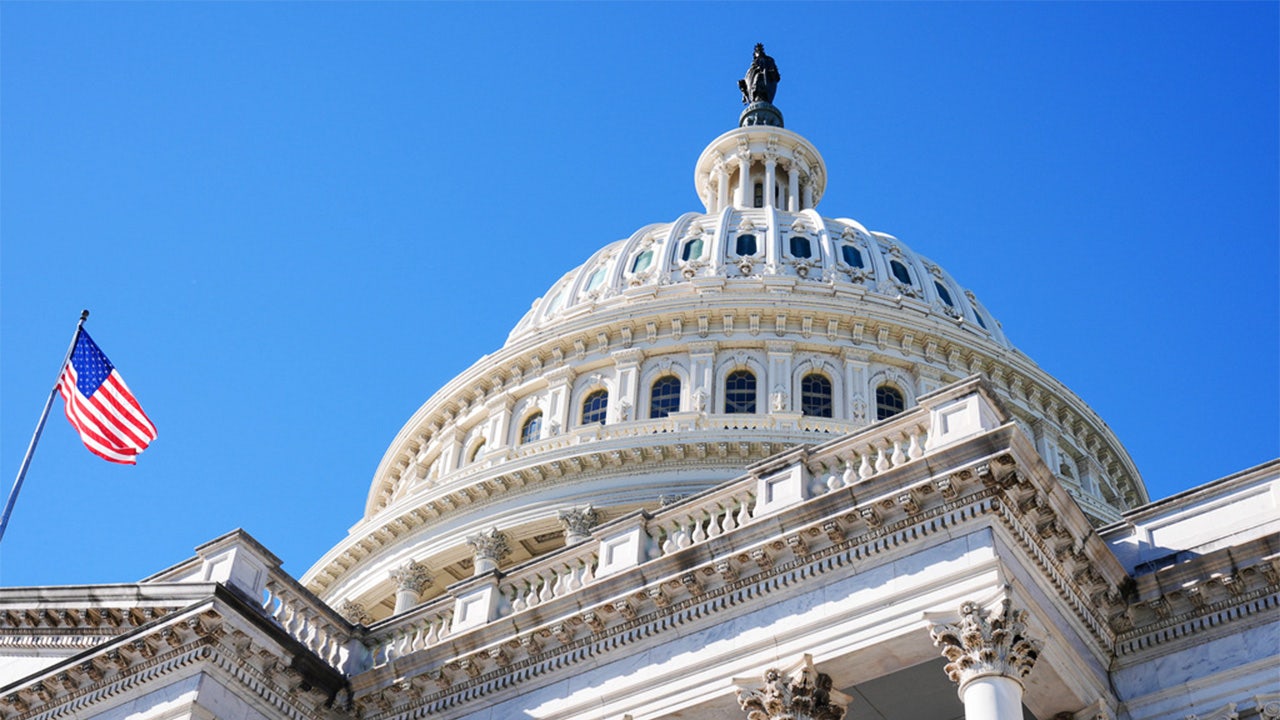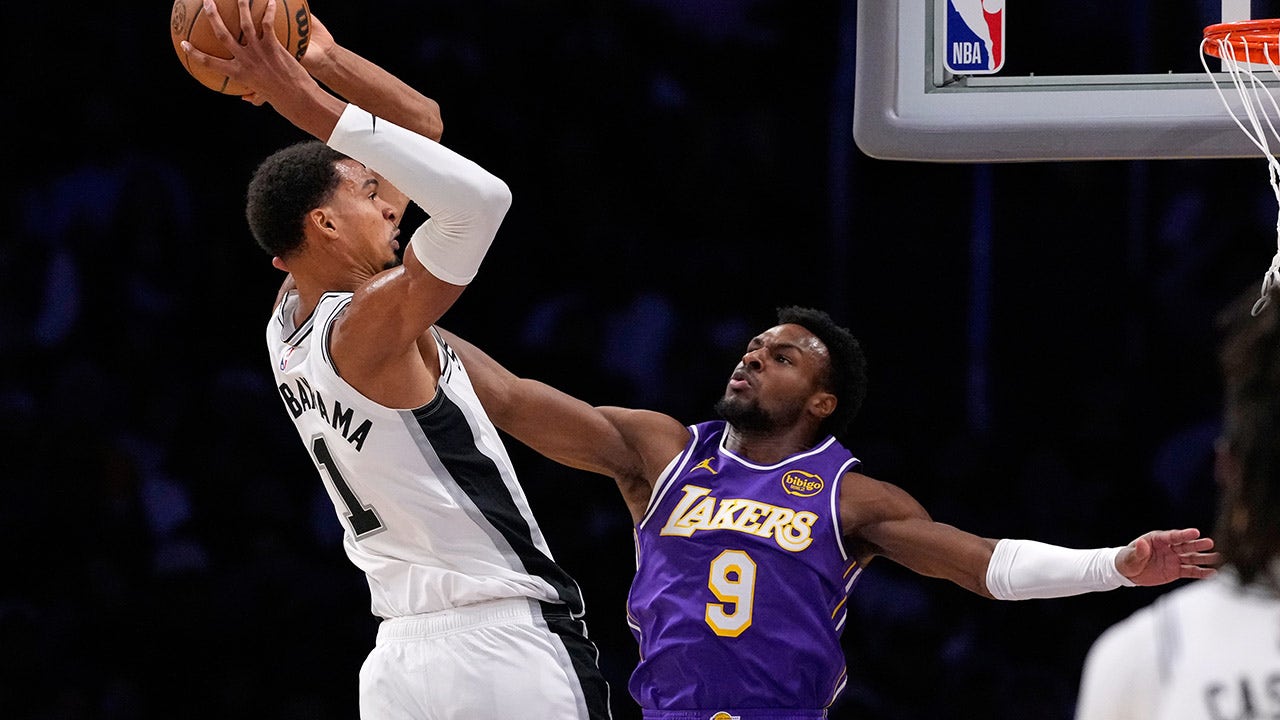Venezuela's Maduro accuses US of starting 'eternal war'
Manhattan Institute fellow Daniel Di Martino, who faces losing his Venezuelan citizenship, discusses Nicolás Maduro's plan to target opposition activists and President Donald Trump's denial that he is considering strikes within the country.
NEWYou can now listen to Fox News articles!
As President Donald Trump warns of "zero tolerance" for narco-states in America’s backyard, China is tightening its grip on Venezuela — a high-risk economic and political bet that could soon collide with U.S. power.
U.S. defense officials confirmed to Reuters last month that a U.S. aircraft carrier strike group had entered the Southern Command region, which covers the Caribbean and the northern coast of South America, to monitor narcotrafficking routes linked to Venezuela’s military leadership.
The Pentagon said the arrival of USS Gerald R. Ford, carrying more than 4,000 sailors and dozens of tactical aircraft, would "bolster US capacity to detect, monitor, and disrupt illicit actors and activities." It added that the mission aims to "degrade and dismantle transnational criminal organizations."
CHINA CONDEMNS US MILITARY BUILDUP OFF VENEZUELA COAST AS FOREIGN INTERFERENCE IN REGIONAL AFFAIRS

China's President Xi Jinping (R) waves next to Venezuela's President Nicolas Maduro during a visit to a housing development in Caracas July 21, 2014. China will provide Venezuela with a $4 billion credit line under an agreement signed on Monday, with the money to be repaid by oil shipments from OPEC member Venezuela. The deal was inked during a 24-hour visit to Venezuela by Xi, who is on a tour of Latin America. (Carlos Garcia Rawlins/ Reuters)
Within weeks, Venezuelan officers were reportedly training for guerrilla-style defense against a possible U.S. strike — an acknowledgment, according to Reuters, of "rising anxiety inside Caracas."
Into this standoff, Beijing unveiled a "zero-tariff" trade agreement with Caracas at the Shanghai Expo 2025, announced by Deputy Minister for Foreign Trade Coromoto Godoy. Venezuelan officials said the accord covers roughly 400 tariff categories, removing duties on Chinese and Venezuelan goods.
While final implementation details remain pending verification, the goal is clear: Beijing is moving fast into a sanctioned economy that Washington has sought to isolate.
"This really looks like China is going to completely take over the Venezuelan economy," said Gordon Chang, an expert on China’s global trade strategy. "It’s going to decimate Venezuela’s local industry."
"Venezuela basically sells petroleum to China and very little else," he said. "China, of course, is a manufacturer of many, many items. Venezuelan manufacturing is not going to experience a renaissance anytime soon — it’s going the opposite direction."
VENEZUELA MOBILIZES TROOPS, WEAPONS IN RESPONSE TO US WARSHIP BUILDUP IN CARIBBEAN
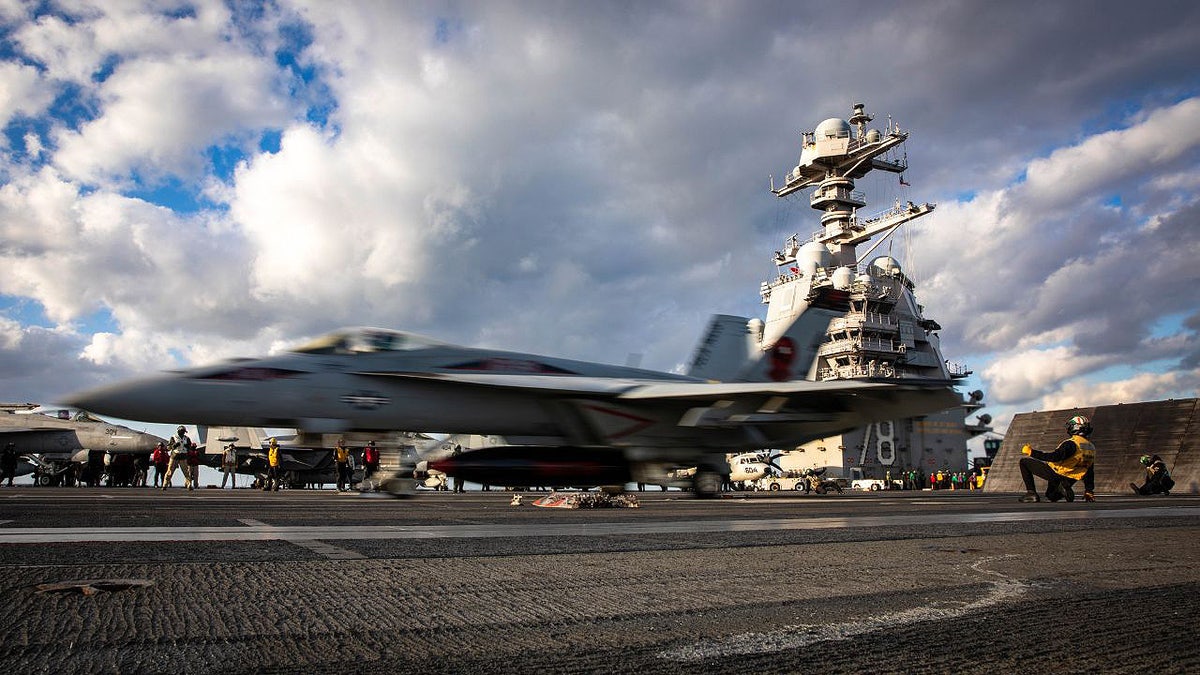
Sailors aboard the world's largest aircraft carrier, USS Gerald R. Ford (CVN 78), launch a Carrier Air Wing 8 F/A-18E Super Hornet attached to Strike Fighter Squadron 31 from the flight deck, Sept. 26, 2025. (Mariano Lopez)
Chang added that Maduro’s sudden embrace of Beijing stems from fear of Trump’s next move.
"Maduro probably doesn’t have a choice," he said. "He realizes he’s got a problem in the form of Donald J. Trump. There’s a U.S. aircraft carrier not far from his shores, and a lot of military assets bearing down on him. He needs a friend, and he’s desperate."
"For Maduro, the zero-tariff pact may offer temporary relief — but it only deepens dependence," Chang added. "I don’t see this trade deal as strengthening Venezuela. I see it strengthening China’s stranglehold over Venezuela."
US MILITARY BUILDUP IN CARIBBEAN SEES BOMBERS, MARINES AND WARSHIPS CONVERGE NEAR VENEZUELA
From Beijing’s perspective, the tariff-free pact opens a commercial and strategic doorway into the Western Hemisphere just as Washington doubles down on sanctions.
The Council on Foreign Relations estimates that China has extended around $60 billion in loans to Venezuela over the past two decades, much of it repaid through oil shipments — a figure still cited by both Chinese and Venezuelan officials in 2025.

Members of the Bolivarian National Militia patrol on a street in the 23 de Enero neighborhood during a military exercise, in Caracas, Venezuela, January 23, 2025. (Leonardo Fernandez Viloria/Reuters)
"China has leveraged multibillion-dollar loans and the establishment of satellite positioning and surveillance facilities to secure strategic control over Venezuela’s natural resources and critical infrastructure," said Isaias Medina III, an Edward Mason Fellow at Harvard University and a former Venezuelan diplomat to the U.N. Security Council.
Medina was referring to the El Sombrero satellite ground station in Venezuela’s Guárico province — a joint China-Venezuela project that Western analysts, including a recent Associated Press report, describe as part of a wider space cooperation network giving Beijing an intelligence foothold in Latin America.
Medina said the new pact must be understood as one layer in a wider anti-Western alignment.
"Under the banner of so-called ‘21st Century Socialism,’ initiated by Hugo Chávez and expanded by Nicolás Maduro, the nation has evolved into a forward operating base for regimes openly hostile to the United States and its allies," he said.
"Iran, Russia, China, and Cuba have entrenched themselves across Venezuelan territory, using the country as a platform for asymmetric warfare, intelligence operations, and ideological expansion throughout Latin America."
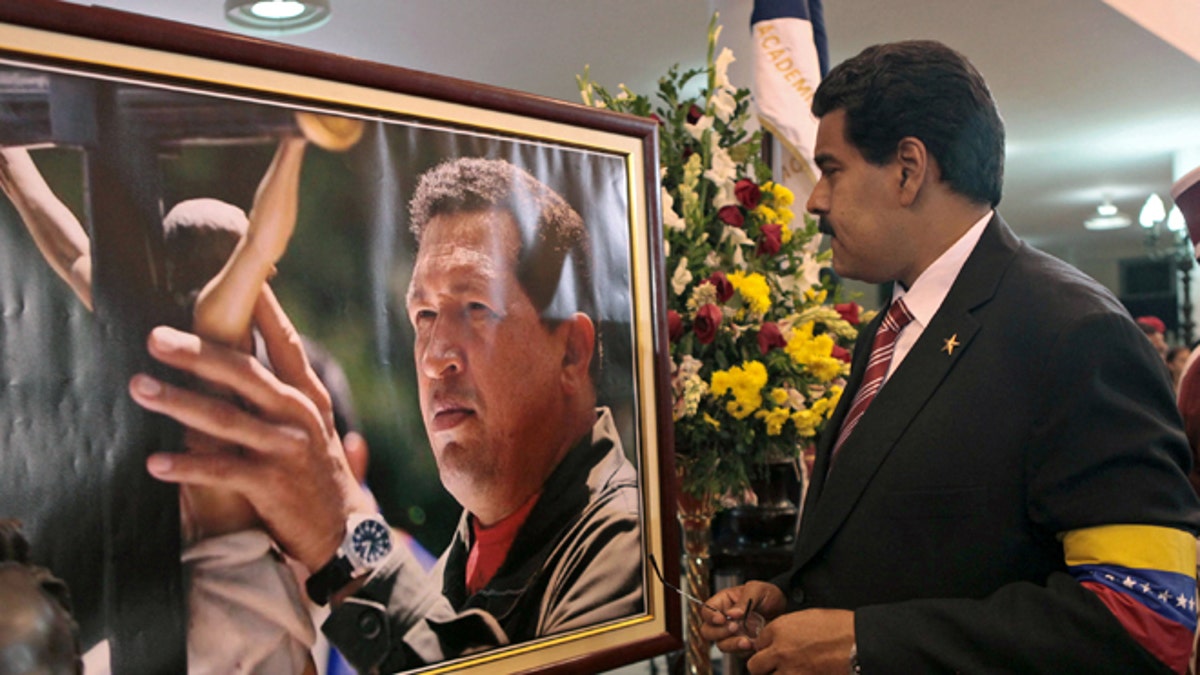
President Nicolas Maduro stands in front of a portrait of Venezuela's late President Hugo Chavez. (AP Photo/Miraflores Press Office, File)
He noted that "Russia’s military footprint includes more than $12 billion in arms sales and ongoing defense cooperation and Wagner Group presence in military exercises," while Cuban military advisers remain embedded inside Venezuelan security institutions.
"Iran has exploited this environment to embed terrorist proxies such as Hezbollah and Hamas, using Venezuela as both a financial hub and a logistical corridor. These activities extend to former training camps in Syria, where Venezuelan operatives and mercenaries have been indoctrinated in hybrid warfare tactics," he added. "Iranian interest includes potential drone manufacturing and uranium mining."
"The Maduro government, shielded by the absence of the rule of law or legitimate governance, has replaced statecraft with criminal enterprise," Medina said. "Grand corruption is not the exception; it is the system."
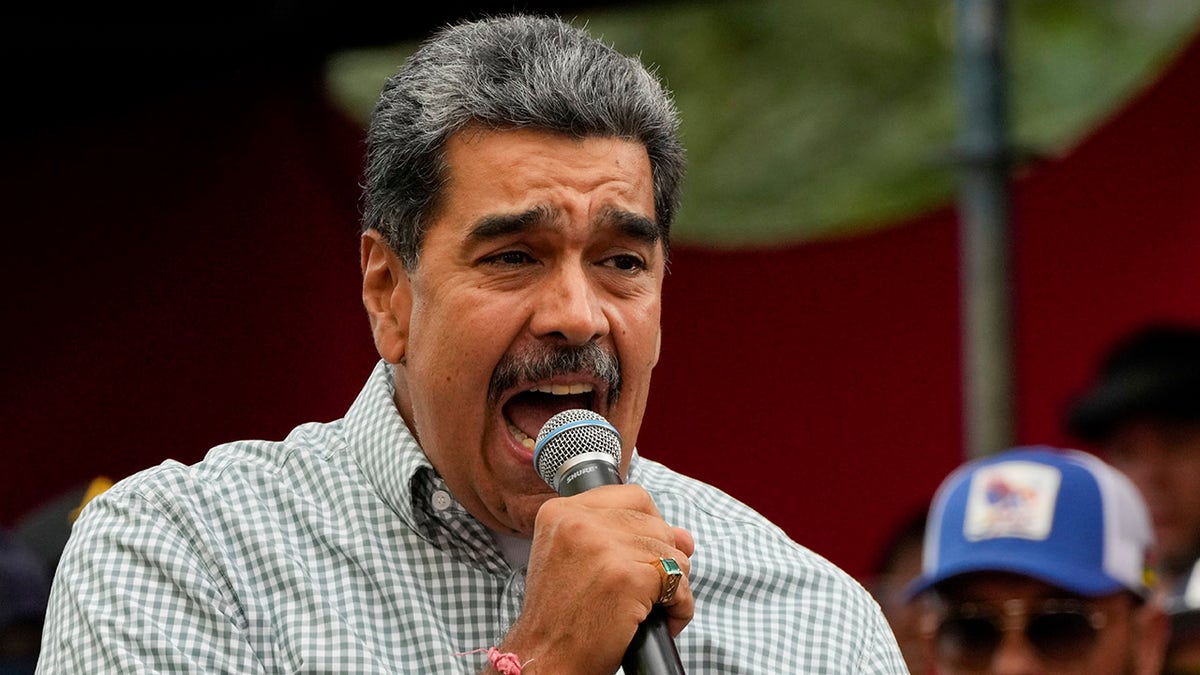
Venezuela's President Nicolas Maduro has yet to publicly comment on the strike. (Ariana Cubillos/AP Photo)
"The humanitarian toll is catastrophic," he added. "Over 30% of Venezuela’s population has been forcibly displaced. Starvation has been weaponized as a tool of social control, amounting to a war crime under international law. Despite the enormity of these crimes, many United Nations member states continue to recognize and engage with this illegitimate regime, thereby perpetuating its impunity. The failure to confront this crisis decisively enables a coalition of adversaries, state and non-state actors alike, to project power dangerously close to U.S. territory."
For now, Washington’s sanctions campaign still constrains Venezuela’s oil lifelines. In March 2025, Reuters reported that U.S. threats to impose tariffs on nations buying Venezuelan crude caused a temporary disruption in shipments to China. Beijing dismissed the measures as "illegal extraterritorial actions" and vowed to continue cooperation — but has not disclosed how it will enforce the new tariff-free pact.
CLICK HERE TO DOWNLOAD THE FOX NEWS APP
The Maduro administration is seeking to rally government supporters amidst a sagging economy and refugee crisis. (Jesus Vargas/AP Photo)
Chang said the underlying reality hasn’t changed: China can’t protect Caracas from U.S. hard power.
"It can certainly launch a propaganda blitz," he said, "but it can’t project military force in the region. It’s really up to what President Trump does. China does not have the military strength to oppose American intervention if that’s what Trump decides."
Medina agreed that the stakes reach beyond economics. "Just three hours from U.S. shores, this narco-terrorist regime has become the operational convergence of organized crime, drug trafficking, money laundering, and human rights atrocities," he said, urging a Western response combining "diplomatic isolation, targeted sanctions, and, when necessary, defensive deployments."
Efrat Lachter is an investigative reporter and war correspondent. Her work has taken her to 40 countries, including Ukraine, Russia, Iraq, Syria, Sudan and Afghanistan. She is a recipient of the 2024 Knight-Wallace Fellowship for Journalism. Lachter can be followed on X @efratlachter.

